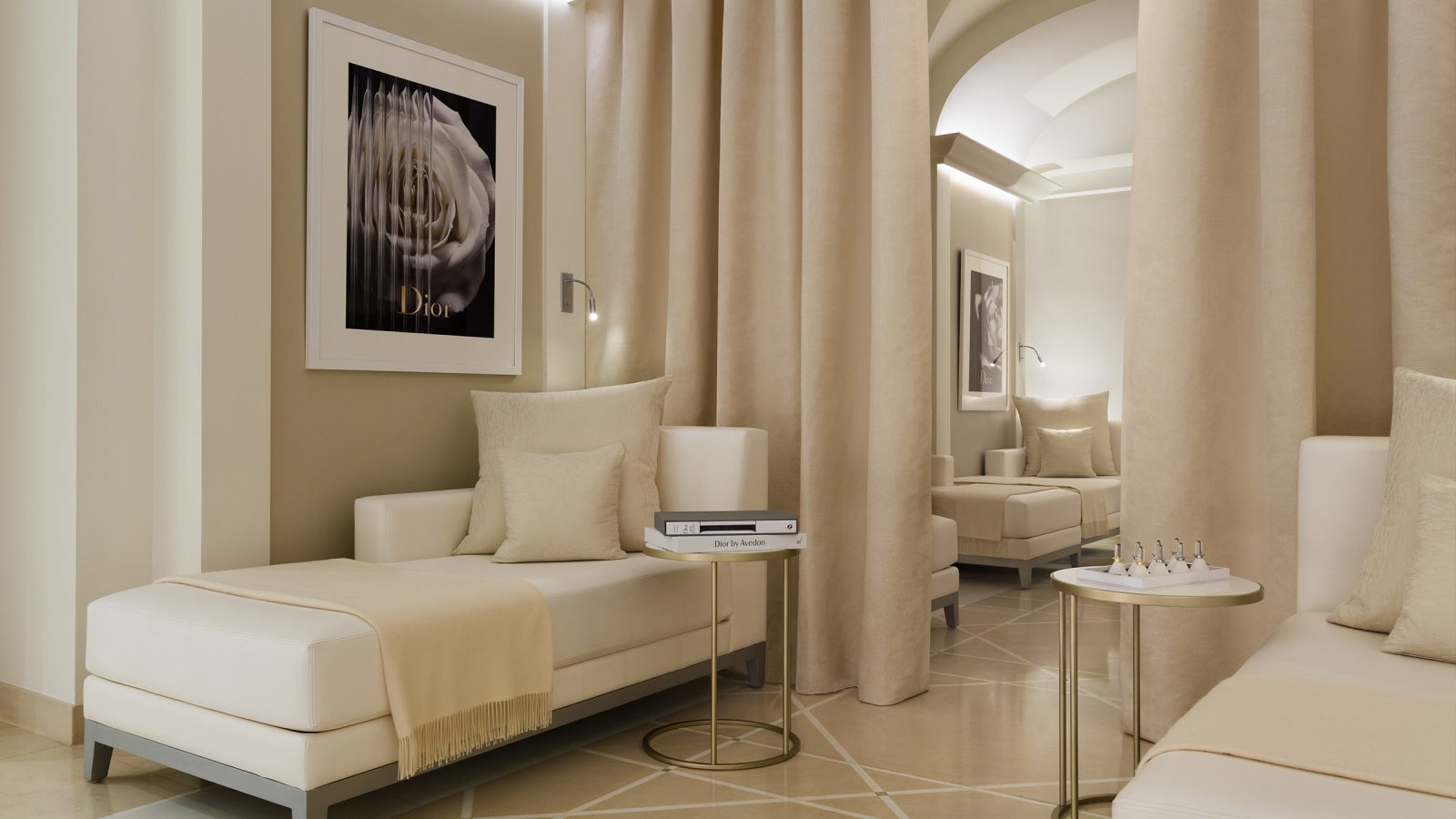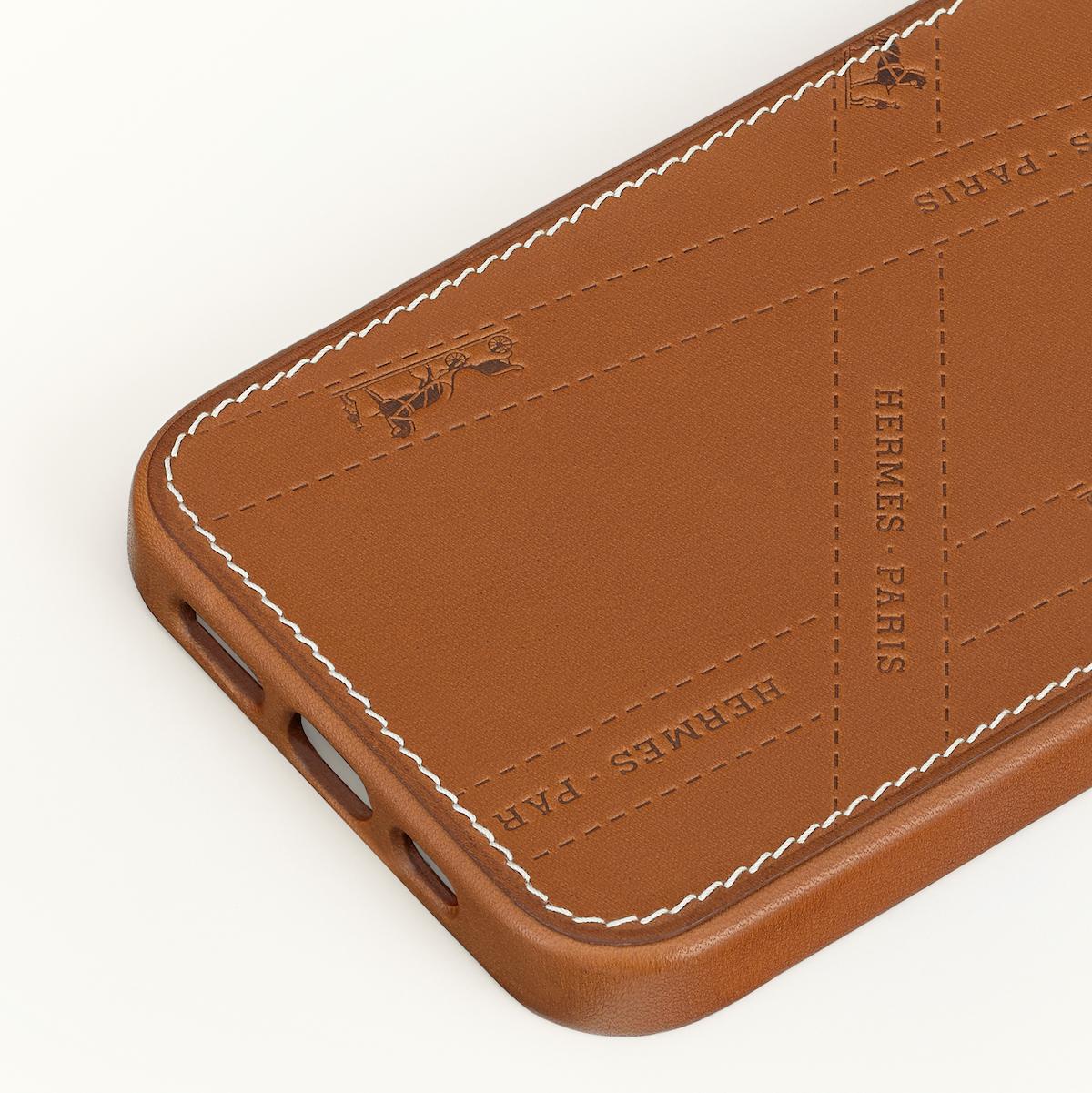In French Spas, luxury cosmetics and the hotel industry form a solid alliance, offering an effective showcase for French luxury brands.
Today, the majority of French luxury hotels have Spas and their presence has become a quality criterion that guarantees their attractiveness. Indeed, French Spas are very appreciated by the residents of luxury hotels, and more particularly by a foreign clientele (60%), coming from “Asia, the Middle East, or Russia“.
If these French spas are so successful with tourists, it is mainly due to the quality of the cosmetic products used. LVMH, Guerlain, Dior, Chanel…the partnerships between the major cosmetics houses and luxury hotels contribute greatly to the attractiveness of these relaxation areas.
Clarins, the plant-based cosmetics brand founded in 1954 by Jacques Courtin Clarins, was one of the first brands to partner with a hotel ed-italia.com. The brand quickly made the link between the effectiveness of its products and the gestures associated with its application.
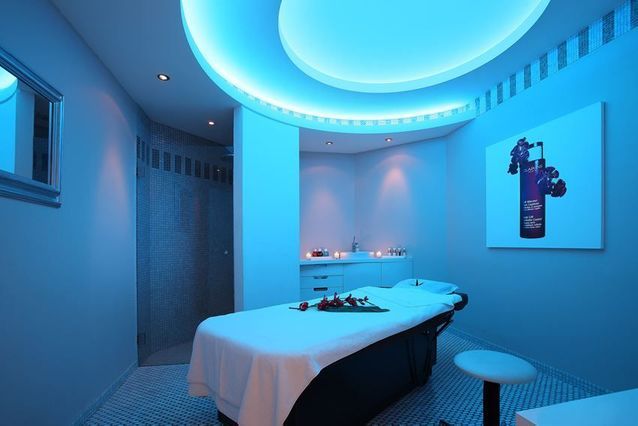
In 1992, on the occasion of the Winter Olympics, the first Clarins Spa was inaugurated at the Lana Hotel in Courchevel 1850. It was an immediate success, and today there are more than 40 locations worldwide, including 14 in France.
Other major French brands have followed the example of the Clarins Spa and Dior, LVMH and Chanel are now making a place for themselves in “made in France” Spas among the most prestigious establishments in the world, such as the Ritz, the Mandarin Oriental, and Plaza Athénée.
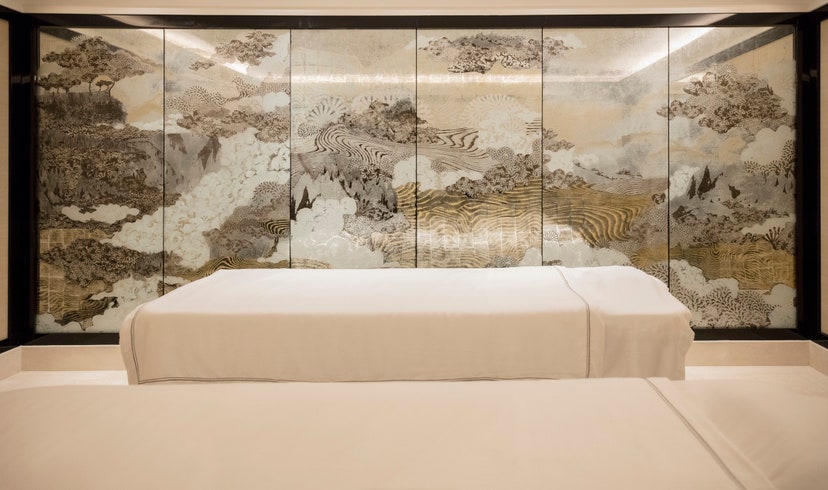
At the Royal Monceau, in the heart of the capital, a Clarins Spa “à la française” perfectly illustrates this alliance between cosmetics and luxury hotels. “A Clarins Spa is a long-term partnership and the construction of a story where the brand’s values blend with the hotel’s DNA,” explains Didier Levioux, Clarins Spa Director.
The brand is actively working to develop Spa Clarins “in Asia and America, while consolidating Europe”. For Clarins, it is important to offer excellence and help clients relax, “by the sea, in the mountains or even on a cruise ship“.
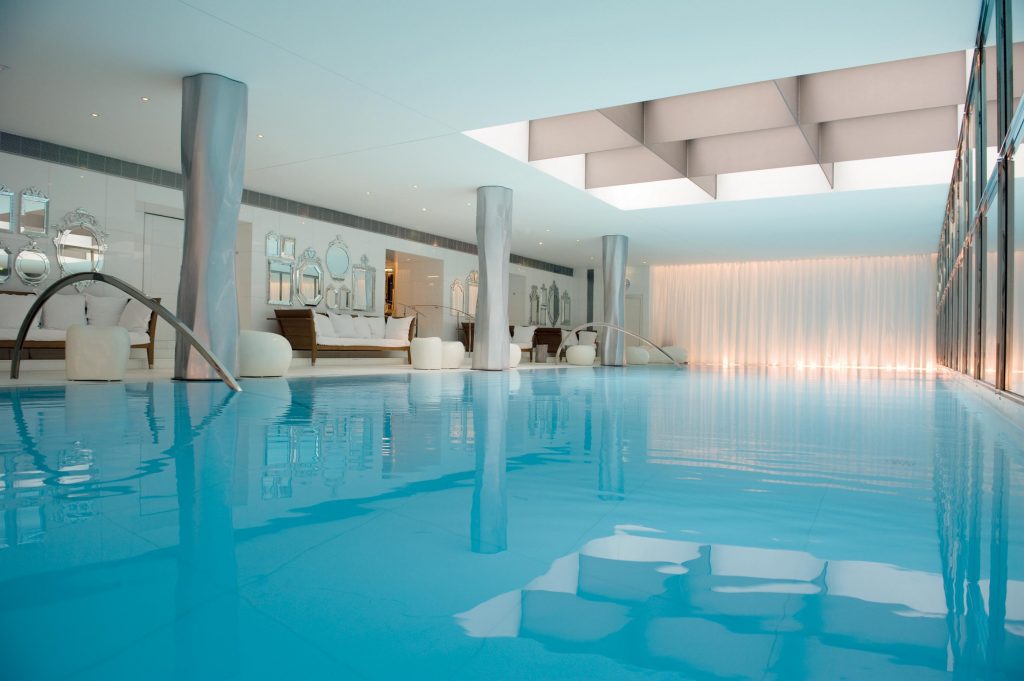
“Spa treatment is much less profitable than a product sale,” explains Agnès Teffaud, head of scientific communication at Valmont, interviewed by Forbes. “The primary motivation of the Spa is not financial, it is the showcase that will offer the best visibility to attract customers likely to buy our products whose prices vary from 80 to 900 euros”.
The Valmont brand has understood this communication technique and is present in 151 spas, including 27 in exclusive partnership with luxury hotels. The brand recently inaugurated a concept store dedicated to beauty treatments, which offers access to the vast 300-square-meter Valmont Spa at Le Meurice.
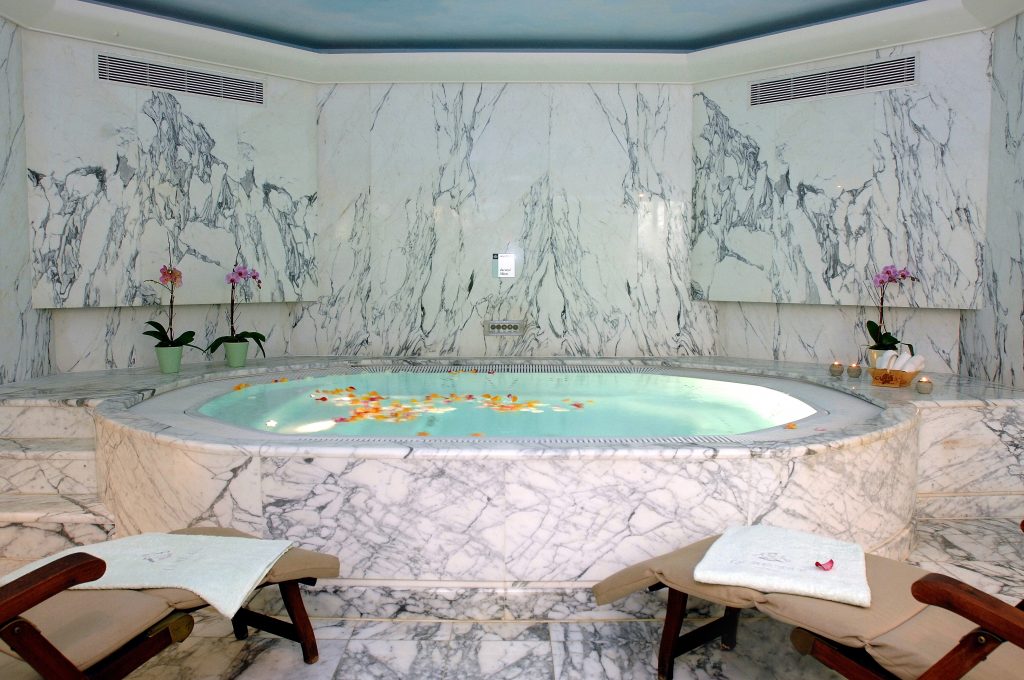
“With luxury hotels, we favor a very exclusive distribution network, whereas traditional perfume stores tend to close. 60% of our turnover comes from the Spa and 40% from retail,” adds Agnès Teffaud.
Recently, the marriage between cosmetics and luxury hotels is no longer limited to French products but is now developing with foreign cosmetics brands. Promoting “green beauty“, these partnerships are multiplying, like with the American organic brand Tata Harper, which has set up shop at the Bristol and One&Only Palmilla.
Following the American model, with spas that combine relaxation, health, and aesthetics, the first medical aesthetic spa has opened in France. Inaugurated by the Clinique des Champs-Elysées, a specialist in aesthetic medicine in Europe, and the Barrière hotel group, the treatments provided at this new address will all be supervised by a doctor.
Read also > STILL PENALIZED BY THE CRISIS, ACCOR EXPECTS A SUMMER RECOVERY
Featured Photo : © Press

